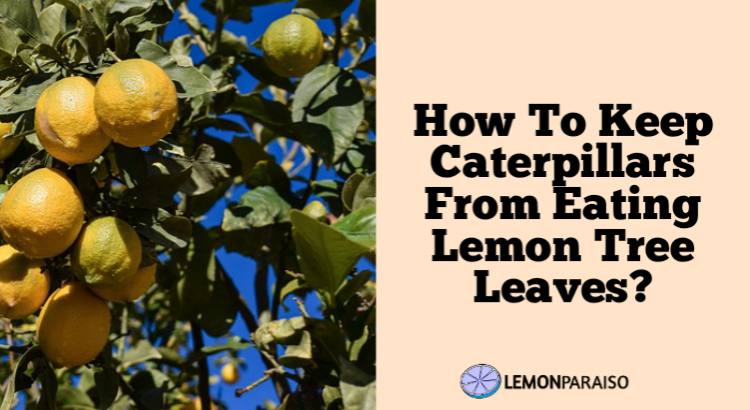Can You Compost Lemons?
Composting is an environmentally friendly and effective method for recycling organic waste and creating nutrient-rich soil for your garden. Incorporating a diverse range of materials into your compost pile is essential for achieving a well-rounded, fertile compost.
Can You Compost Lemons?
Yes, you can compost lemons as they are a natural organic material, and like other fruits, they will decompose over time. However, it’s essential to be mindful of the acidity of lemons and other citrus fruits, which can temporarily increase the pH of the compost.
To counteract this effect, it’s a good idea to balance the acidity by adding materials high in carbon, such as dried leaves, shredded paper, or small branches. Moreover, incorporating other fruit and vegetable scraps can help create a diverse and nutrient-rich compost.
Lastly, be aware that composting large quantities of citrus fruit may not be suitable for worm bins, as worms are sensitive to acidic environments.
How Do You Compost Lemons?
To compost lemons effectively, first chop the fruit into smaller pieces to facilitate decomposition. Next, add the lemon pieces to your compost bin, along with a variety of other fruit and vegetable scraps, ensuring a balanced and diverse mixture.
Be sure to add carbon-rich materials like leaves, straw, or cardboard to counteract the acidity of the lemons. Regularly turn the compost pile to aerate it, promoting the activity of microorganisms that help break down the materials.
Keep the compost pile moist but not soaking wet to support decomposition. In time, the lemons will decompose, contributing valuable nutrients to the compost.
Are Lemons Good For Compost?
Lemons can be a beneficial addition to your compost, as they provide essential nutrients such as nitrogen, potassium, and phosphorus. Their high water content also helps maintain the moisture balance in the compost pile.
However, it’s crucial to add lemons in moderation due to their acidity, which can harm beneficial microorganisms and worms if not properly balanced. To make the most of lemons in your compost, combine them with carbon-rich materials and a variety of other organic materials, creating a well-rounded and nutrient-rich compost.
Do Lemon Peels Break Down In Compost?
Lemon peels will break down in compost over time, although they may take longer to decompose than other materials due to their tough texture and high oil content. To speed up the decomposition process, you can chop the peels into smaller pieces before adding them to the compost pile.
Ensuring a proper balance of carbon and nitrogen-rich materials and maintaining optimal moisture and aeration will also help the lemon peels break down more effectively.
Will Composting Lemons Attract Pests?
Composting lemons, like any other fruit or vegetable scraps, can potentially attract pests such as rodents and insects. To minimize the risk of attracting pests, always bury the lemon scraps in the center of the compost pile, which will help mask the scent and make it harder for pests to access.
Also, ensure your compost bin has a tight-fitting lid or cover and maintain a proper balance of carbon and nitrogen-rich materials to discourage pests.
Can You Compost Lemon Seeds?
Yes, you can compost lemon seeds, as they are organic materials that will decompose over time. However, lemon seeds may take longer to break down than other compost materials, and there is a slight possibility that they could sprout if the conditions are favorable.
To minimize this risk, bury the seeds deep within the compost pile and ensure a proper balance of carbon and nitrogen-rich materials.
How Long Does It Take For Lemons To Compost?
The decomposition time for lemons in a compost pile can vary depending on several factors, including the size of the lemon pieces, the balance of carbon and nitrogen-rich materials, and the overall conditions of the compost pile.
Generally, it can take anywhere from a few weeks to over a few months for lemons to fully decompose in compost. Chopping the lemons into smaller pieces, maintaining a well-balanced and diverse compost pile, and ensuring proper moisture and aeration can help speed up the decomposition process.
How Do You Know When Compost Is Ready?
Compost is considered ready to use when it has reached a dark, crumbly, and earthy-smelling state, resembling rich garden soil. The original materials should no longer be recognizable, and the compost should feel cool to the touch.
The decomposition process should have slowed down significantly, with minimal heat being produced in the pile. Mature compost should also not contain any large, undecomposed materials.
If you’re unsure whether your compost is ready, you can conduct a simple germination test by planting a few seeds in a small container filled with the compost. If the seeds germinate and grow well, it’s a good indication that the compost is ready to use.
Can You Put Lemon And Lime In Compost?
Yes, you can put both lemon and lime in compost, as they are organic materials that will decompose and contribute nutrients to the compost pile.
However, both fruits are acidic, so it’s essential to add them in moderation and balance their acidity with carbon-rich materials such as dried leaves, straw, or cardboard.
Combining lemon and lime with a diverse range of other organic materials will create a nutrient-rich compost that can benefit your garden. Remember to regularly turn and aerate your compost pile to ensure even decomposition and maintain proper moisture levels.


